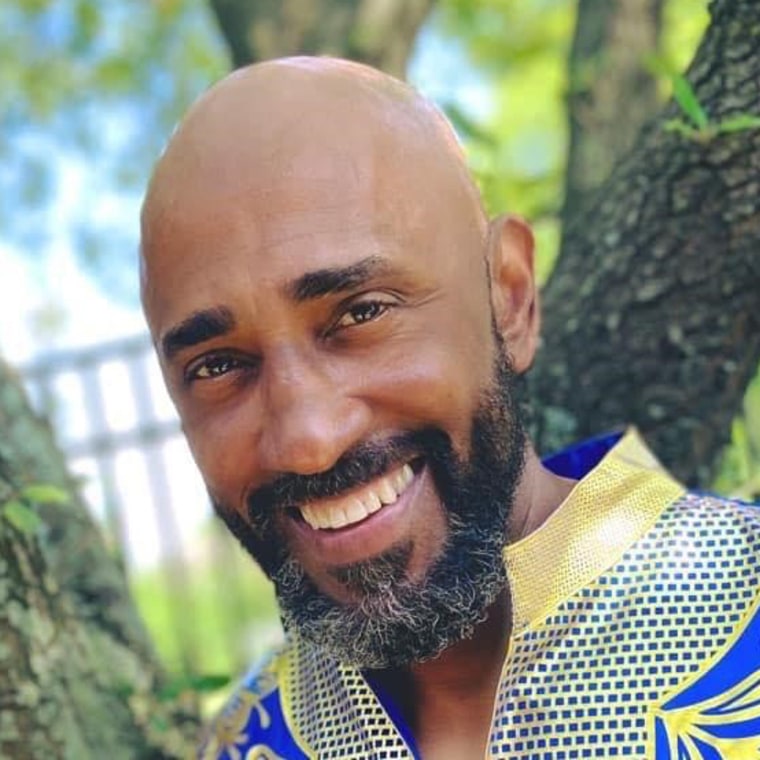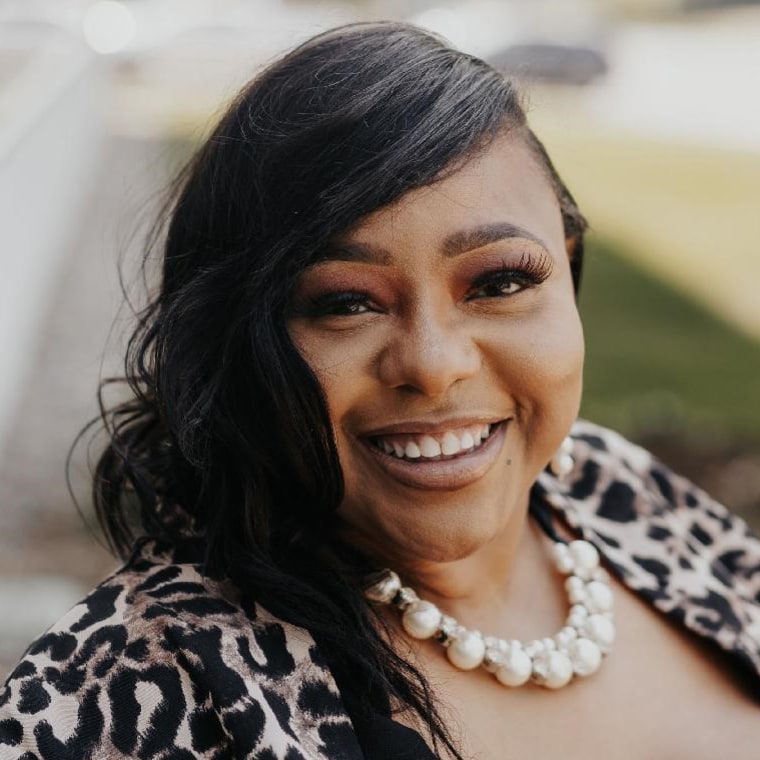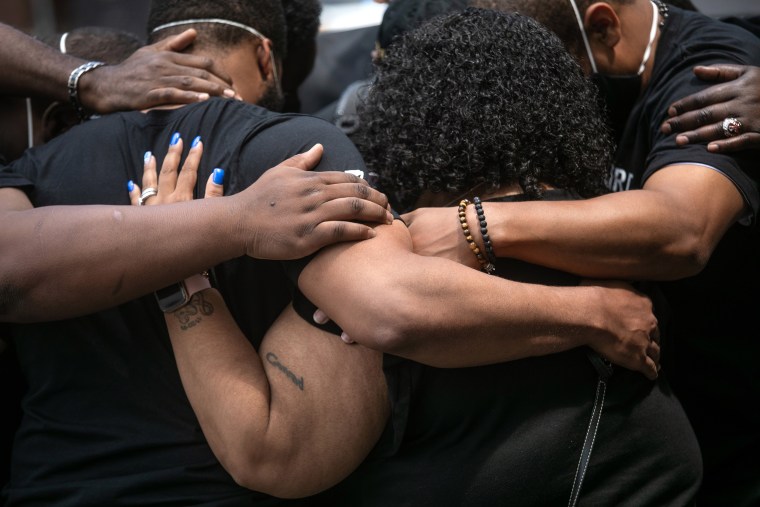Two days after Christmas, Johnny Oaks found his son, Jonathan, dead in his bedroom of their Houston home. The cause of death: Covid-19.
The shock and pain crippled Oaks. “J,” as he called his son, was just 37. He had been diagnosed with the coronavirus only two days before, after being sent home from work because of excessive coughing.
Jonathan was Oaks’ only son, whom he raised as a single parent before getting remarried.
Even though he was devastated, Oaks said he still felt fortunate that he was able to give his son a proper burial because he had life insurance.
“Ever since he was 4 or 5, I had him covered,” he told NBC News. “Without life insurance, it would have been a struggle. It had been 20 years since I had been involved in a funeral — my mom’s. At that time, it was $7,000. Now, for my son, it was $17,000.
“I’ve seen where people have had to raise money to bury their loved ones. I wouldn’t wish that on anyone. J’s death took me for a loop. I couldn’t believe it, but then there’s a funeral to plan. There are a lot of emotions flying around. To have to worry about expenses for a service would be too much, although I know many people, unfortunately, have that worry.”
According to a study of 3,000 people released this month by LIMRA, a research organization for insurance and financial services companies, Black people are incrementally getting the message that Oaks learned long ago. Its 2021 Barometer Study says that 56 percent of Black Americans have now purchased life insurance policies in the last year, which is the highest rate among all racial groups.
This gain shows that Black people have responded to the harsh reality of mortality amid the devastating impact of the coronavirus on their communities; Black Americans have suffered the highest death rate per 100,000 people than any other group, according to the National Center for Health Statistics.
The pandemic “brought the idea of mortality to the forefront of people’s minds,” said Alison Salka, a senior vice president and director at LIMRA. “So generally, we found that because of the pandemic, almost a third of customers said they were more likely to buy life insurance because of it, but that number goes up for different demographic groups, like Black Americans.”
Erwin McGowan’s father was 32 when a car accident ended his life. He left behind a wife and eight children in a shotgun house in Angie, Louisiana, a small village on the Mississippi border.
“My mother was a widow at 28,” McGowan said. “We struggled hard all of our lives. There was my mother with a bunch of kids. So, we suffered for one reason: There was no life insurance.”
“Life insurance could have been a game changer for us in 1972.”

The recognition of the value of life insurance resonated with McGowan as he got older and moved to Houston. His family’s situation after his father’s death inspired him to get into the insurance business.
The 59-year-old State Farm operator and agent said he intentionally established his business 25 years ago in Houston’s Fifth Ward, a Black and Latino neighborhood where 38 percent of residents live in poverty. With his upbringing, he said, he can “relate to their living situation. I know it’s hard.”
“Our people don’t know enough about or see the value in life insurance. That has to change. And that’s why I chose where I am — to help the people who need it most.”
As reflected in the study, McGowan said he has seen an influx of policies acquired by clients since the pandemic began. Life insurance, he said, “represents a level of security that, ‘I can at least bury my loved one with dignity and without worry.’ That’s the low end of what life insurance can do. There is so much more to help families. But the biggest problem in our communities is the lack of education around life insurance, especially around its cost.”
According to the survey, Black Americans largely had not purchased coverage pre-pandemic because they were more likely than the general population to overestimate the cost of life insurance (75 percent versus 50 percent).
Affordability was a common theme in the survey. It concluded that Black people had a higher level of financial concern than the overall population average, adding that Covid exacerbated those concerns. Additionally, it found that Black Americans were significantly more likely to be concerned about being able to save for an emergency fund, pay their monthly bills and their mortgage, and about leaving their families in a difficult situation due to a premature death.
Beyond living expenses and savings, Salka said, considering insurance is important “to protect your family, in case something happens to a wage-earner.”
An average Black family’s net worth is less than 15 percent of that of the average white family as of 2020, according to the Federal Reserve, creating a stark racial wealth gap that Salka said could be impacted if Black people purchased more life insurance.
According to the study, Black Americans are more likely than other racial groups to view life insurance only for burial and final expenses. This perception of life insurance could result in Black Americans not purchasing enough coverage to provide income replacement or enable wealth transfer, two key ways life insurance can benefit loved ones after a wage earner dies.
Stephanie Harris of Detroit calls herself “The Insurance Lady.” She sells life insurance as an independent contractor with American Income Life, and has warned potential Black clients to seek plans that would benefit them instead of selecting the least expensive option.

“You have to think about the wife, with the children,” she said. “What about the house? What about the car note? Will the children be able to afford the $200 for a football uniform? Are they going to be able to afford college? Those are the questions that have to be considered instead of getting just enough for a burial. That’s the minimum we should be thinking. Life insurance can be the financial security for our future and our children’s children, because the quickest form of transferring wealth is life insurance.”
McGowan said the idea of planning for the harsh reality of death can be hard for some people.
“But it’s going to happen,” he said. “I may not be able to sell the big executive policies, universal life policies, but I can sell a burial policy with anywhere from $30 to $50 a month. It’s something. It’s better than what I have seen a lot of lately, where there are GoFundMe accounts to raise money to bury a loved one.”
He said he has seen people without life insurance try to raise money for burials and costs “through a fish fry, washing cars, raffle tickets.” He said, “You’ll never raise enough money. And so I see a lot of regrets from clients who did not follow my advice. But what I’m seeing is that we’re getting better, and that’s encouraging.”
During the pandemic, McGowan created a social media group of 175 Black agents of State Farm across the country to discuss concerns and spread life insurance education for Black communities.
“We have a responsibility as business owners, particularly insurance agents, to be more on the attack of sharing the story more,” he said. “It’s up to us to highlight the fact that we’re talking a dollar a day to get a low-end plan. Something is better than zero. We’ve had a lot of small policies and companies like big policies because they are more profitable. I get that. I get that. But I think we have to stress to our community to make a sacrifice. At the very least, start small, but build into more.”

